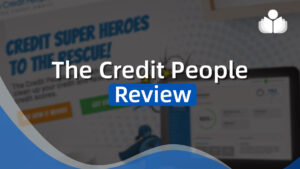This posting by: Hank Lewis
An issue was raised on a listserve:
“I have become more and more concerned about the exploitation of client stories in fundraising tools.” “How do you counsel clients about the ethics/morality of using client stories as appeals?”
=========================
Whenever a question is posed about ethics/morality that includes the words “using” and “exploitation,” it’s a pretty good bet that the writer has already made a judgment.
“Exploitation” was/is a favorite word used to describe/condemn how employers use young (physically attractive) women to generate business. The word was never used by the employers (who increased the bottom line), the employees (who were being paid for their labors), and the patrons of the businesses (for their own reasons).
The word was only used by outsiders who did not and/or could not agree with the perspective of either of the three participants.
I am commenting, remember, on the use of a word, not on the writer’s discomfort.
Before using the word “exploit,” one should ask oneself what, if any, harm is being done. If no harm is being done… that’s your answer. And, if only an “outsider” is seeing the “harm,” is there really any harm being done?
In the case of using the story (with or without photos or live appearances) of a consenting adult (client-of-a-nonprofit), it would be incorrect to attach the emotional content of “exploitation” to the transaction — because it is, indeed, a transaction.
The client would agree to have his/her story told in exchange for something that makes him/her feel good — be that gratitude, a desire to give back, the understanding that s/he will benefit when the nonprofit benefits … or any other reason s/he might have.
That does raise a few questions: Have (for example) those starving, barefoot children in the tv solicitations given their consent? Are they capable of giving “informed consent”? Are they being harmed by having their stories told and their faces “displayed”? Do they benefit by having their stories told and their faces “displayed”? Are they being exploited?
What do you think ??
=-=-=-=-=-=-=-=-=-=-=-=-=-=
Have a comment or a question about starting, evaluating, or expanding your fundraising program? With over 30 years of counseling in major gifts, capital campaigns, bequest programs, and the planning studies to precede these three, I’ll be pleased to answer your questions. Contact me at [email protected]
=-=-=-=-=-=-=-=-=-=-=-=-=-=
Click this link to find descriptions of all the titles in The Fundraising Series of ebooks.
=-=-=-=-=-=-=-=-=-=-=-=-=-=
If you’re reading this online and you would like to comment/expand on the above, or would just like to offer your thoughts on the subject of this posting, we encourage you to “Leave a Reply” at the bottom of this page, click on the feedback link at the top of the page, or send an email to the author of this posting. If you’ve received this posting as an email, click on the email link (above) to communicate with the author.
 Sections of this topic
Sections of this topic
















